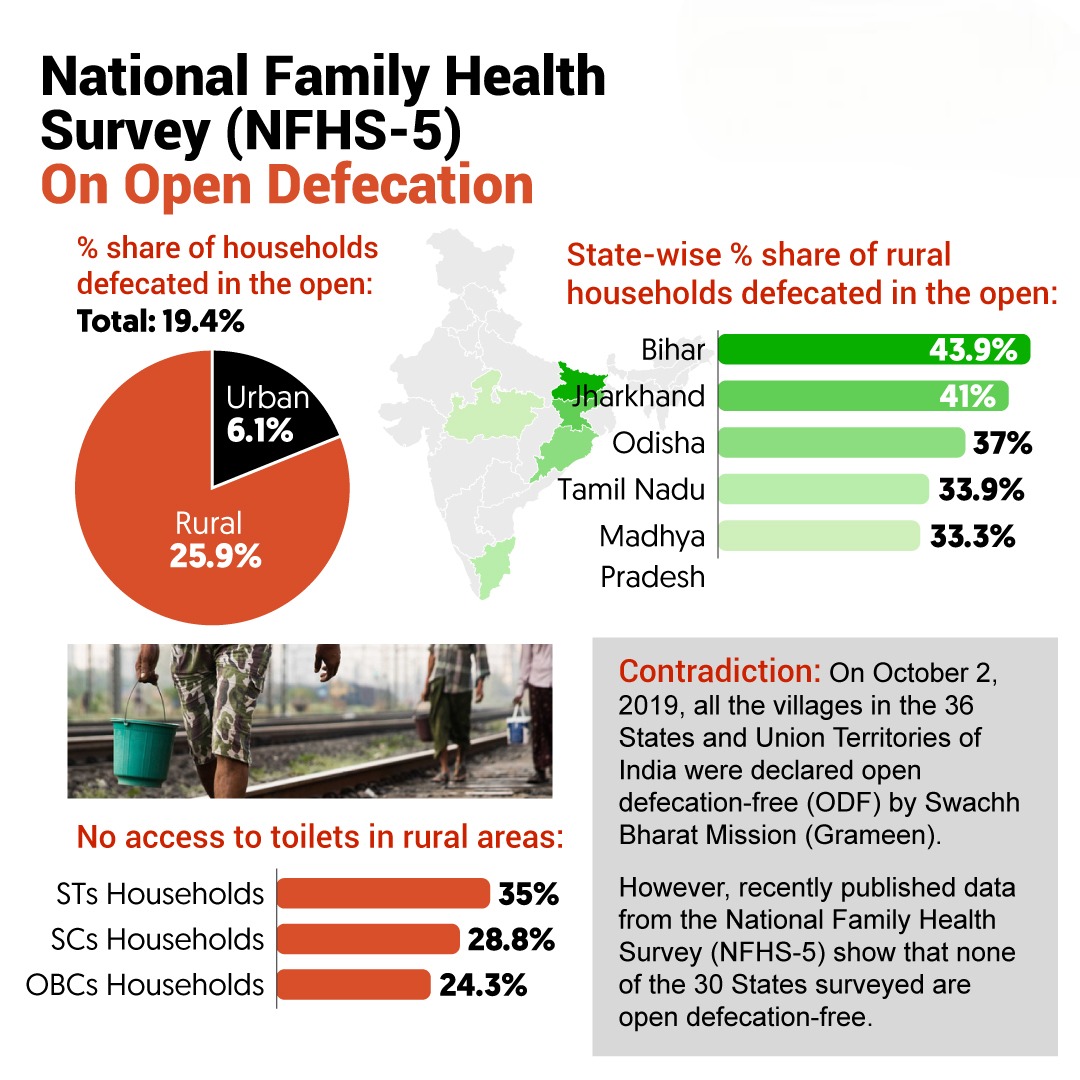Own Standards To Assess Socio-Economic Progress
Context:
The Union government’s decision to abandon what it deems the universal worldwide data metrics used to gauge the socioeconomic development of the nation has divided health campaigners.
National Family Health Survey
- Purpose: The NFHS is carried out in India to collect thorough data on all facets of family welfare and health to inform programme planning, policy formulation, and assessment.
- Partners in the ministry: The survey is conducted by the International Institute for Population Sciences (IIPS), selected state agencies, and the Ministry of Health and Family Welfare, Government of India.
- Survey Rounds: The NFHS is periodically administered, usually with a few-year break between rounds. The NFHS-5 cutoff is the most recent round as far as I’m aware, and it started in 2019.
- Data collection: To assure representative data at the federal, state, and local levels, the survey uses a multi-stage, stratified sample approach. It gathers data by administering standardised questionnaires to eligible men and women (15-54 years old) chosen as part of the sample.
- Topics covered: The National Family Health Survey (NFHS) examines a wide range of health and demographic variables, including fertility, maternal and child health, nutrition, family planning methods, use of medical services, reproductive health, HIV/AIDS, and other relevant topics.
- Data Analysis: To produce reports, the gathered data is subjected to in-depth quality checks and analysis. The status, trends, and differences in health and family welfare indicators across various geographic locations and population subgroups are discussed in these publications.
- Impact on Policy and Programmes: The NFHS data is essential to the development of health and family welfare policies and programmes. The findings support the identification of important areas of attention, comprehension of the efficacy of current interventions, and development of evidence-based decisions for enhancing health outcomes.
- Public Access: The NFHS reports are made available to the general public, enabling academics, NGOs, and other interested parties to access the information and utilise it for advocacy, additional analysis, and study.
Points to Ponder:
- Current Parameter: India has been measuring its socio-economic progress using international data metrics based on global norms. These factors include stats on childhood stunting, the percentage of women in the labour force, and birth weight.
- Anthropometric Measurements and Diversity: India is a varied nation with notable regional differences in both anthropometric measurements and socioeconomic variables. According to the administration, the uniform worldwide standards do not adequately capture the diversity and unique circumstances of the nation.
- Skewed Data and Anomalies: According to the Indian government, skewed data and anomalies are caused by the adoption of international parameters. The socio-economic development indicators, according to their argument, are distorted by faulty adjustments and modelling techniques, giving an inaccurate picture of India’s development.
- Disagreements and Recalibration: The Union Health Ministry has previously revised certain domain criteria. For instance, they created their method for calculating the burden of tuberculosis and challenged the World Health Organization’s COVID-19 death modelling. Disagreements with international organisations have resulted from these recalibrations.
- Criticism of Global Standards: Objections to the Global Standards According to a working paper of the Economic Advisory Council to the Prime Minister, foreign organisations routinely underrate India’s socioeconomic development. The research makes the case that these underestimates affect global indices as well as policy intervention feedback.
- Importance of accurate data: Accurate data is crucial since investment and trade decisions are increasingly based on environmental, social, and governance (ESG) standards. The article emphasises the significance of trustworthy data in these areas and expresses worry regarding the accuracy of data at this time.
- Perspectives from Health Activists: Indian health campaigners have differing opinions on the subject. Some contend that rather than challenging the standards, the emphasis should be on enhancing the status of services and that international norms should be viewed as aspirational standards. They think that if given access to essential health and nutrition services, every child can meet world standards.
- India-Specific Parameters Are Required: Others agree that the standards should be changed to more accurately represent India’s performance. They contend that India should create standards and guidelines that take into account the nation’s diversity and unique socioeconomic circumstances. They think that by doing this, it will be possible to better accurately assess India’s development and address some of its particular problems.





